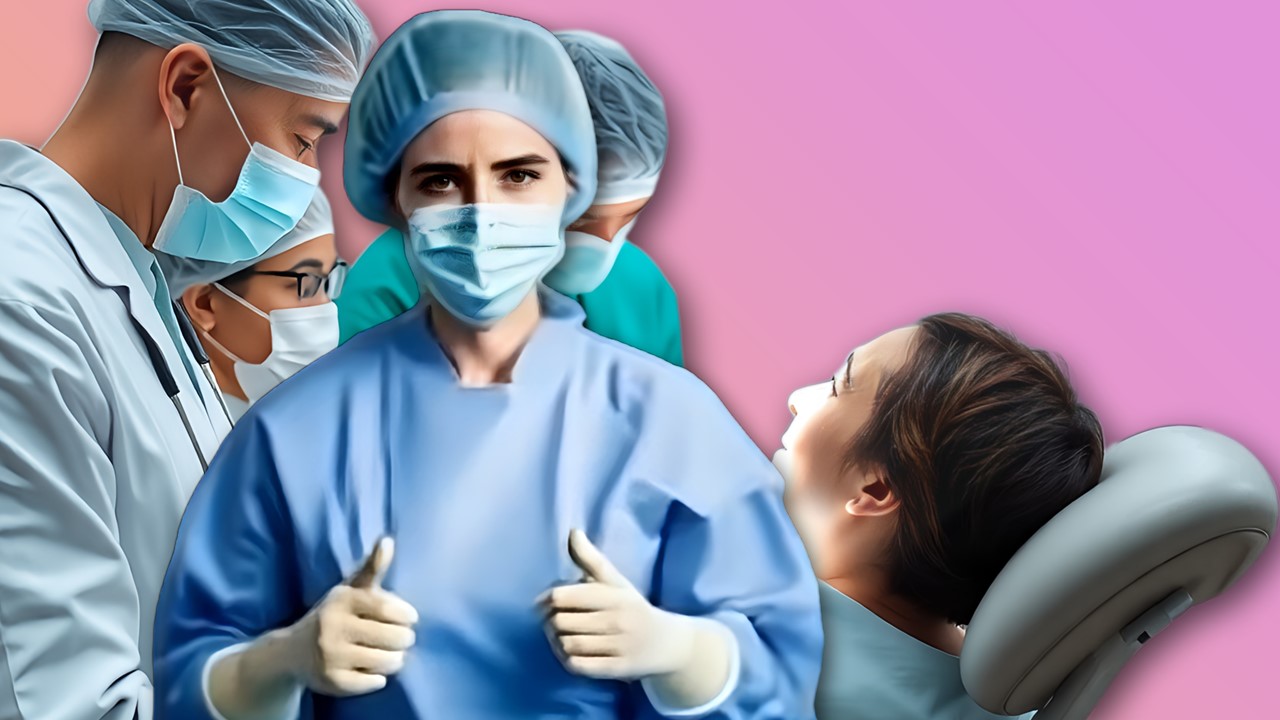
MSc Dento-Alveolar Surgery and Implantology
Course in Brief
The MSc in Dento-Alveolar Surgery and Implantology is designed to meet the growing demand for dentists skilled in minor oral surgery, providing a pathway to deliver dental care with predictable outcomes. This innovative program integrates key components of implantology, creating a comprehensive framework that addresses the essential skills required in this critical area of dentistry.
A central focus of the curriculum is on tissue regeneration and augmentation, which are pivotal in ensuring the success of various dental procedures. The rapid advancement in 3D imaging technologies has revolutionized the way dental professionals diagnose and plan treatments. By incorporating such cutting-edge tools into the learning experience, the program equips students with the necessary competencies to evaluate and implement effective treatment strategies for a broad range of oral diseases.
Moreover, the emphasis on aetiology and diagnosis fosters a deep understanding of the underlying conditions affecting oral health. This knowledge is essential for practitioners aiming to provide comprehensive dental care, as it enables them to accurately identify and address the root causes of patients' issues beyond mere symptomatic treatment.
The program bridges theoretical knowledge and practical experience through clinical training with actual patients. This hands-on approach not only consolidates the dentist's existing expertise but also enhances their confidence and proficiency in performing complex procedures. Graduates will have developed a robust skillset, allowing them to navigate the challenges of modern dental practices successfully.
Course Overview
The MSc Dento-Alveolar Surgery and Implantology program is designed to enhance surgical capabilities by providing advanced skills in minor oral surgery. This programme develops the competencies necessary to confidently handle a variety of dento-alveolar surgical procedures. The program is ideal for those looking to expand their surgical repertoire and incorporate more complex procedures into their practice.
The curriculum goes beyond the basics of surgical sciences; it encompasses advanced techniques and procedures that are crucial for successful implant placement and site enhancement. Among these techniques are advanced bone augmentation procedures, which are essential in cases where there has been significant bone loss. Understanding how to perform these augmentations will enable graduates to create optimal conditions for successful implant placements, ultimately leading to better patient outcomes.
The programme has been carefully planned to ensure that modules provide a scaffolded approach to learning, with earlier modules underpinning later ones and the contents of one module complementing another taught in the academic year. For example, after having spent 90 hours in the 1st semester doing practical work in the dental manikins’ Dental Skills Laboratory, simulating the clinical environment, you will enter the clinical training environment and begin working with patients.
Apart from the well-established, in academia, written assessments (exams, reports, etc.), this Programme includes other more contemporary types of assessment that are also being used by other organisations, like the Royal College of Surgeons and the General Dental Council (GDC). The broad range of assessment types in the Programme aims at consolidating your learning. Some such assessments’ type examples include Observed Structured Clinical Examinations (OSCEs), professional discussions, etc.
Highlights
- Consolidation of safe clinical practice principles in accordance with the Safe Practitioner Framework published by the GDC
- Comprehensive face-to-face teaching in the theory of clinical dentistry from a broad range of perspectives
- Clinical training placement supervised by recognised clinicians in the field. As interns, you will be treating actual patients at our purpose-built and outreach centres.
- Contemporary types of assessment, mirroring those utilised by the General Dental Council(GDC) for the ORE examinations and the Royal College of Surgeons, e.g. OSCEs·
- Support in attaining MFDS
- Small group learning opportunities and access to the very latest digital and AI modalities
- Opportunities for personal and professional development in primary dental care
- Contribution to the research base of primary dental care, encouraging research among practitioners
- Reflective practice through the self-appraisal of own levels of competency
- Gain a degree from the University of Greater Manchester, accredited by the British government, whose degrees are recognised internationally.
Key Features
- Course materials are available online, allowing you to prepare work at home and make the most of the highly interactive in-class tuition.
- This course is based at the University of Greater Manchester’s campus in the North West of England.
- We offer opportunities for you to undertake advanced research into a variety of subjects. Whenever possible, we'll support you to focus on projects that are directly linked to your personal interests and career development needs.
- If the outcomes and standard of your major research project prove appropriate, we will support you in reformatting your project into an academic paper for submission to an academic journal, ready to seek publication.
- Opportunities for progression after completing this master's degree include PhD programmes.
- Preparation for MFDS examination Royal College of Surgeons
- By choosing to study with us, you'll have the chance to enjoy Bolton's many shops, restaurants, and leisure facilities. Manchester, one of the UK's most multicultural and lively cities, is less than 20 minutes away by train. Not forgetting, the North-West of England is renowned for its beautiful countryside, coastline, and heritage. This makes Bolton an ideal base from which to explore some of the best cultural and outdoor activities the UK offers.
Careers Summary
An MSc from the University of Greater Manchester is recognised globally as a stamp of professional achievement, and such postgraduate qualifications are used worldwide by many countries as the benchmark standard for advanced practice at a specialist level. An MSc confirms the acquisition of advanced competencies fundamental for a dental career with either primary or secondary care. It is recognised by many licencing authorities as conferring eligibility for specialism.
What you can do with your qualification
On attaining this MSc, you can put the award after your name, an endorsement of your professionalism by a UK government university that is internationally recognised. Possession of a postgraduate qualification, such as the MSc, will play a role in demonstrating suitability for specialist training. The MSc programmes prepare and support students for the Diploma of Membership of the Faculty of Dental Surgery MFDS examination offered by the Royal College of Surgeons. It demonstrates a deeper understanding of both the knowledge and application.
Alternative Careers
An MSc is a prerequisite in many teaching institutions and an entry qualification to academia, opening up teaching and research opportunities. You can become a recognised expert and opinion leader at the forefront of your speciality.
Teaching and Assessment
Our team of academic and professional staff will use a variety of teaching and learning strategies to help you gain and develop appropriate concepts, knowledge, and skills. You can expect lectures, seminars, practical classes in the dental manikin and skills laboratory, training placement, workshops and tutorials.
It's important to realise that the time spent with a tutor (or clinical supervisor) during formally scheduled activities is only a small part of the learning time identified for a module. We will also expect you to spend significant time in guided independent study, such as general background reading, preparing for seminar activities, and working on assignments. We're committed to supporting you throughout your learning journey and achieving your goals. Over time, our guidance will purposefully become less structured and prescriptive. This will encourage you to develop confidence and independence in your studies and take responsibility for managing your own learning time as you increase in professional autonomy.
The assessment strategy for the programme is designed to help you achieve the overall aims of the curriculum as well as the learning outcomes for individual modules. As well as assessing your achievement, it helps to organise and develop your learning. Assessment feedback can help you build your skills and an understanding of your strengths and weaknesses.
The types of assessments you'll be required to complete fall into two general categories: formative and summative. Formative assessments help in learning and developing knowledge and skills . Summative assessments, on which grades are allocated, reflect the quality of the learning that has been achieved. Formative assessment will take place via tutorial discussion, clinical assessment during training placement, group workshops including peer and tutor review, and guidance on work in progress. Formative feedback will be provided face-to-face via discussion, online, or in written form. Summative assessments consist of both practical and applied theoretical work. These will include a range of assessments, including group activities (group role plays), professional discussions, OSCEs, Vivas, reports, written exams, portfolios of clinical cases, PowerPoint presentations, and a Dissertation.
Modules
- Multidisciplinary Patient Assessment and Risk Management (DDT7014)
- Three Dimension Digital Imaging Techniques, Interpretation and Technology (DD7015)
- Tissue Regenerative and Augmentation Techniques (DDT7018)
- Aetiology and Diagnosis of Oral Disease (DDT7021)
- Multidisciplinary Care and Advanced Reflective Clinical Practice (DDT7016)
- Research Methodology (DDT7012)
- Dissertation (SPR7052)
Course Outline
C: Core / O: Optional
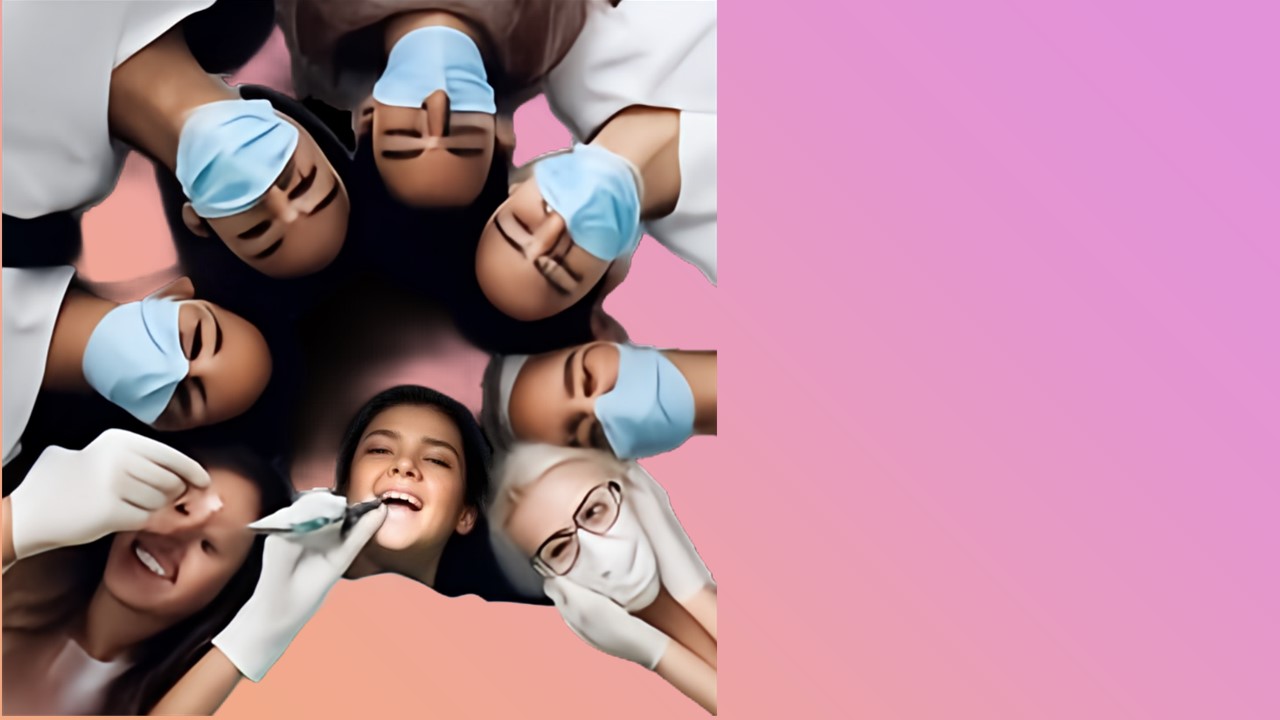
Module Outline
This module is designed to prepare students for practice and develops knowledge and understanding of legal and regulatory frameworks required by the GDC and other UK regulatory bodies. The module incorporates the learning outcomes for a Safe Practitioner. The various factors linked to safe practice, predictable outcomes, assessment, and treatment planning are comprehensively discussed, keeping a patient-centered approach.
Patient management, including risk management, is at focus during the delivery of this module. Fundamental principles for professionals in the health sector are analysed, namely obtaining valid patient consent, ethical principles, and integrity, amongst others. The module also focuses on developing self-reflective awareness, which is at the core of every health practitioner. Potential multi-factorial complications that arise in treatment are highlighted, enabling you to develop risk assessment strategies to avoid or minimise complications in multi-disciplinary therapy.
The practice of predominantly elective treatments is one of the most challenging as it often entails in-depth knowledge of more than one speciality, each having its unique set of complications that need to be identified and effectively managed. As it is not possible to prevent all complications, this module also considers essential management strategies and the ethical issues of professional duty of candour and managing patient expectations.
A considerable amount of scheduled teaching time will be spent in the dental manikin laboratory, which simulates the clinical environments you will be working in during the delivery of your training placement modules. The content of this module is current as a large part of it is based on the new GDC framework “The Safe Practitioner," a framework of behaviours and outcomes for dental professional education. The learning is consolidated by applying taught in-class theory knowledge to the dental manikin environment. The different assessment components reinforce one another, as the first two are interlinked being based on role-play, while they set the foundations to sit the written examination at the end of the module delivery.
Learning Outcomes
On successful completion of this module, you will be expected to be able to:
- Critically assess complex clinical situations and challenges systematically and creatively
- Critically apply knowledge and understanding of patient assessment to treatment modalities to develop a treatment plan
- Critically evaluate clinical and environmental factors to create a comprehensive risk assessment
- Demonstrate integrity and adherence to the Safe Practitioner framework
- Demonstrate effectiveness in obtaining valid patient con
Learning And Teaching Strategy
This module will be delivered through a combination of learning and teaching methods including: lectures, seminars, practical classes in the dental manikin laboratory and tutorials. Delivery will be supported by online discussions and activities posted on the VLE. You will be expected to attend all scheduled sessions and prepare for these in advance by undertaking relevant research and background reading.
Formative Assessment Strategy
Formative assessment is employed to support your learning on the module, allowing you to reflect on feedback on your progress from your tutors and peers. It takes a variety of forms, including group activities, discussions, and tutorial work, and does not contribute to the final module mark.
Summative Assessment Strategy
The summative assessment strategy is underpinned by three items of assessment. The first item is a group role play and script, which takes place early in the module delivery, while the second item is a viva based on the performance and content of the role play and script. The third item is a 120-minute written examination.
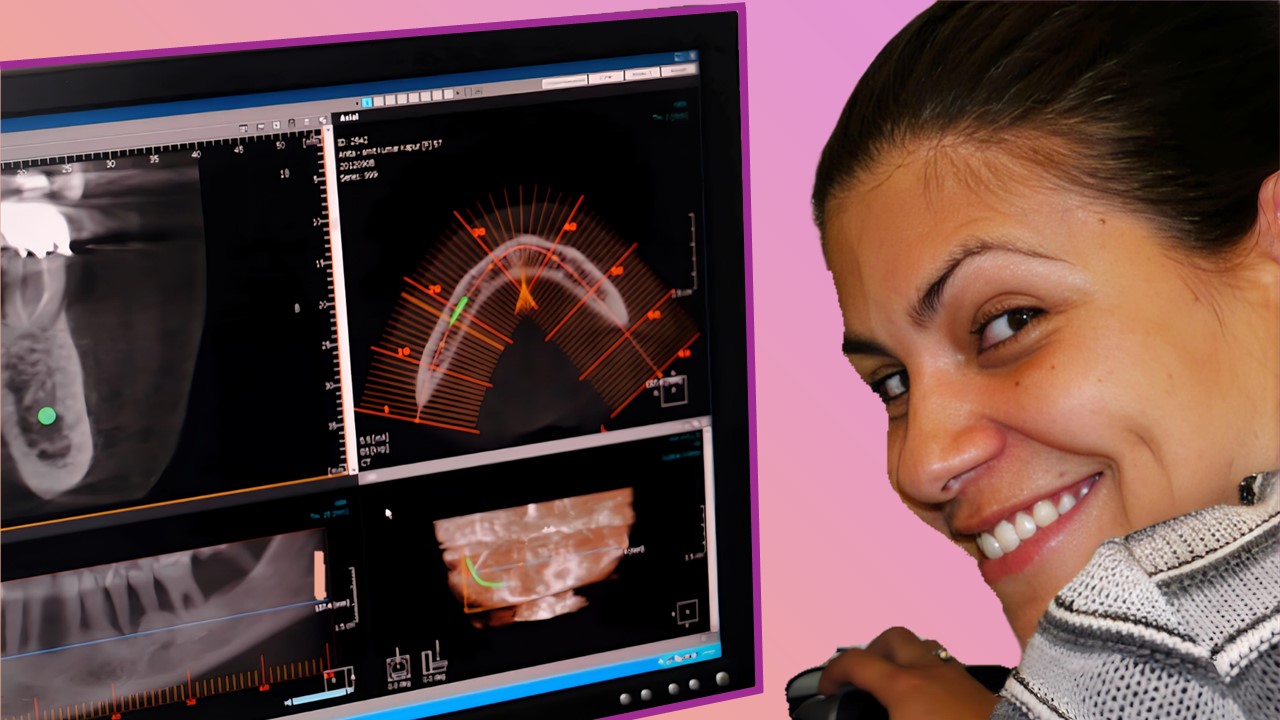
Module Outline
The module introduces Intra and Extra-oral scanners, and Cone Beam Computer Tomography (CBCT) through a series of practical training sessions on three-dimensional imaging systems and their underlying principles. This module will develop the skills of navigation, manipulation, and interpretation of three-dimensional images. Through this module, you will learn the fundamentals of scanning technologies, their advantages, and their limitations.
You will also be taught about the operating and legal requirements applicable to the safe and effective use of radiographic equipment, plus health and safety issues related to ionizing radiation. The content of this module is current as it focuses on the latest developments in scanning technologies and treatment modalities that require that type of radiographic analysis and assessment.
One of the two methods of assessment also follows the equivalent one utilised by the Royal College of Physicians and Surgeons intercollegiate examinations. The learning is consolidated by applying taught-in-class theory knowledge to the training placement environment. All module components reinforce one another efficiently, as the taught in-class theory sessions running in parallel with clinical training prepare the students appropriately for their OSCE assessment while also informing them of appropriate directions they are required to follow for the development of their written report.
Indicative Content
- The technology of 3D scanning and computerised tomography
- Scanning and cone beam CT and spiral CT imaging technologies
- Scanning and CBCT as part of initial assessment, treatment planning, formulation of workflows and planned guided surgery
- Regulatory requirements and legal aspects of CBCT
- Results interpretation and report writing
Learning Outcomes
On successful completion of this module, you will be expected to be able to:
- Critically identify and implement the most appropriate scanning or combination of scanning protocols for the development of a treatment plan
- Critically apply knowledge and understanding of scanning, CBCT scanning and 3D imaging technologies
- Critically assess and manipulate 3D images and draw conclusions
- Synthesise knowledge to develop an effective analysis of radiographic findings
Learning And Teaching Strategy
This module will be delivered through a combination of learning and teaching methods, including lectures, seminars, training placement and tutorials. Delivery will be supported by online discussions and activities posted on the VLE. You will be expected to attend all scheduled sessions and prepare for these in advance by undertaking relevant research and background reading.
Formative Assessment Strategy
Formative assessment is employed to support your learning on the module, allowing you to reflect on feedback on your progress from your tutors and peers. It takes a variety of forms, including group activities, discussions, and tutorial work, and does not contribute to the final module mark.
Summative Assessment Strategy
The summative assessment strategy is underpinned by two items of assessment. The first item is an Objective structured clinical examination (OSCE) with 2 components, while the second item is a 2000-word report
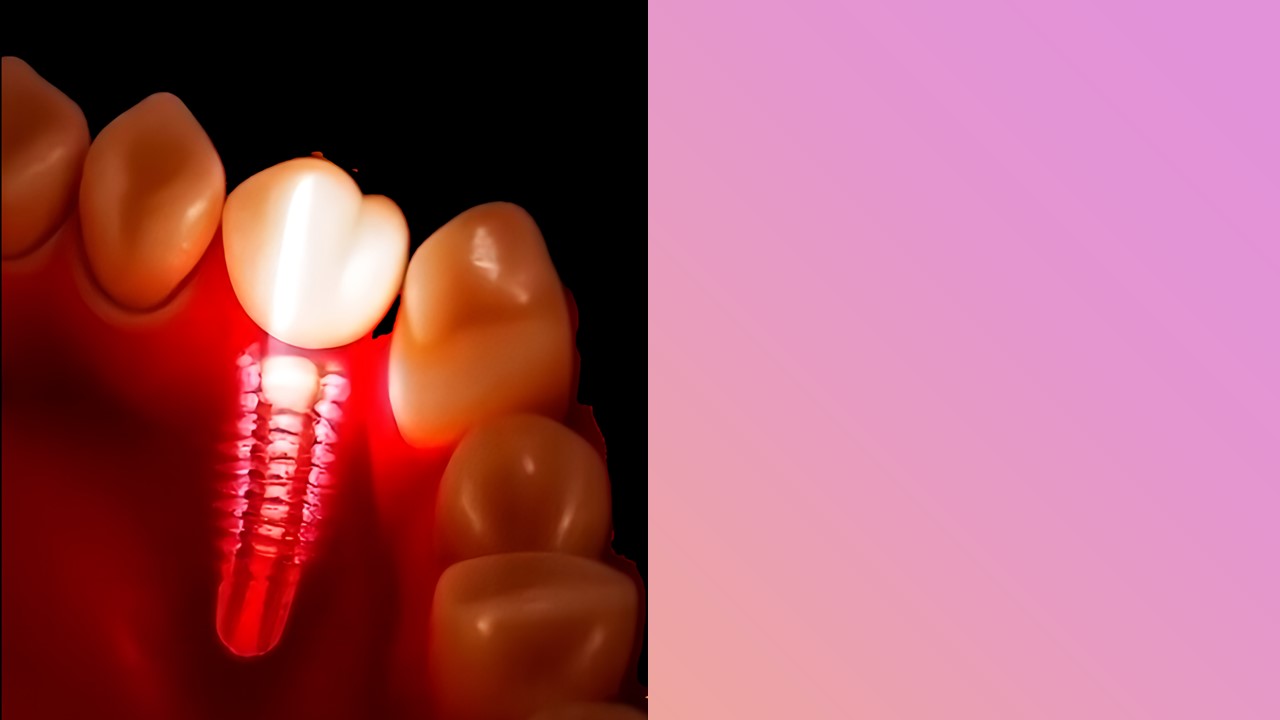
Module Outline
This module provides a comprehensive overview of the complex nature of augmentation of dentofacial soft and hard tissues. You will conduct literature searches and critically appraise current evidence relating to the management of tissue defects or diseased tissue. Through understanding and using appropriate academic resources you will synthesise key points in a critical and evidence-based based.
The module is underpinned by theory consideration during patient assessment so that effective decisions about appropriate tissue treatment modalities can be made, developing the corresponding treatment plans, and putting patients’ interests first. This module will also consider potential complications and risk assessment strategies to avoid or minimise complications.
The content of this module is current as its methods of assessment follow the equivalent ones utilised by the Royal College of Physicians and Surgeons intercollegiate examinations. The learning is consolidated by applying taught in-class theory knowledge to the training placement environment. All module components reinforce one another efficiently, as the taught in-class theory sessions running in parallel with the training placement, prepare the students appropriately for their OSCE assessments and written exams.
Indicative Content
- Introduction to tissue grafting and augmentation
- Indications and contra-indications for grafting and augmentation
- Distinguish between the different biomaterials according to origin and biologic mode of action
- Grafting protocols and tissue manipulating technologies
- Treatment planning and assessment of graft dimensions
- Making accurate records of defect size and grafting methodology
- Selection of appropriate graft protocol and material
- Identification and appropriate management of complications
- Evidence and theoretical research to support clinical conclusions
- Development of risk assessments associated with the finalised/agreed treatment plans
Learning Outcomes
On successful completion of this Module, you will be expected to be able to:
- Critically assess complex clinical situations and challenges in the management of tissue defects
- Critically apply knowledge and understanding of patient assessment and grafting materials to tissue regenerative and augmentation treatment modalities
- Critically and systematically select the most appropriate grafting protocol to deliver the required sustainable increase in tissue volume
- Critically evaluate clinical and risk factors in tissue regeneration to create a comprehensive risk assessment
Learning And Teaching Strategy
This module will be delivered through a combination of learning and teaching methods including lectures, seminars, training placement and tutorials. Delivery will be supported by online discussions and activities posted on the VLE. You will be expected to attend all scheduled sessions and prepare for these in advance by undertaking relevant research and background reading.
Formative Assessment Strategy
Formative assessment is employed to support your learning on the module, allowing you to reflect on feedback on your progress from your tutors and peers. It takes a variety of forms including group activities, discussions and tutorial work and does not contribute to the final module mark.
Summative Assessment Strategy
The summative assessment strategy is underpinned by two items of assessment. The first item is an Objective structured clinical examination (OSCE), while the second item is a 60-minute written examination.
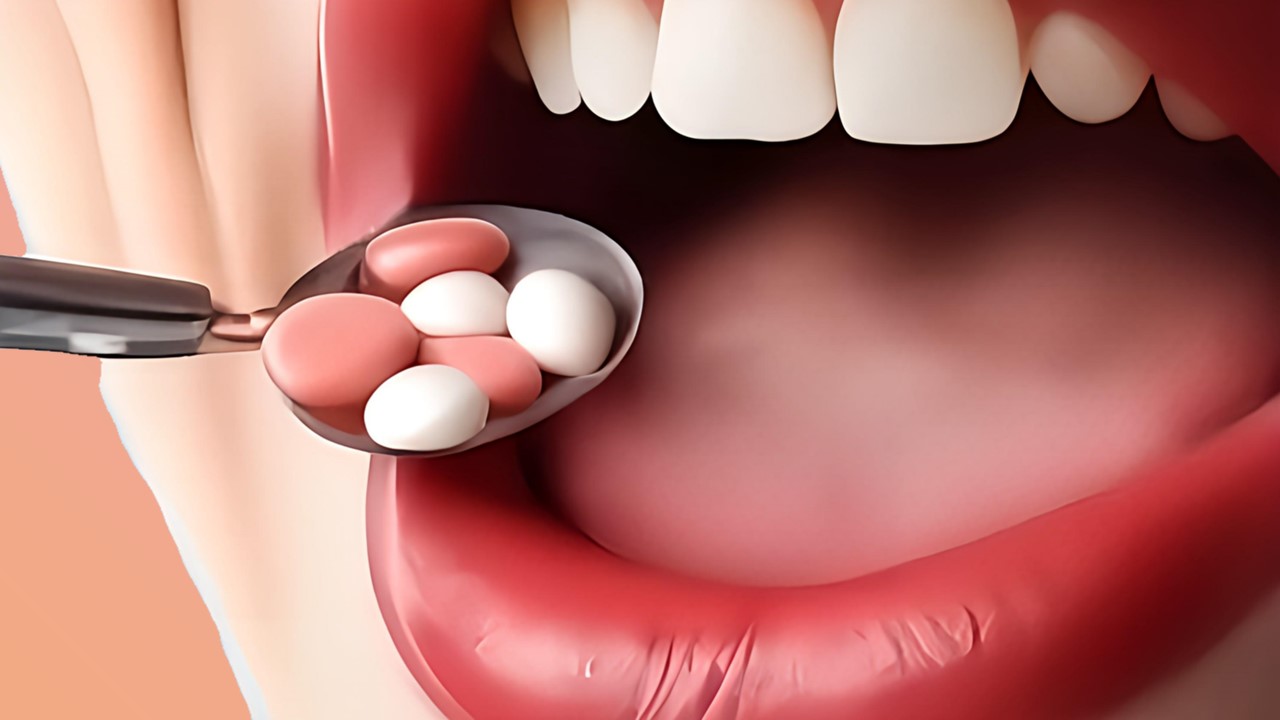
Module Outline
This module will allow you to critically reflect on the key causes of oral pathologies, their identification, diagnosis and appropriate evidence-informed treatment modalities. You will identify and critically appraise evidence and theory relating to the diagnosis and management of oral diseases. The module is underpinned by the application of theory to patient assessment so that effective diagnostic decisions and appropriate treatment modalities can be selected, developing the corresponding treatment plans, and putting patients’ interests first. You will also consider potential complications and synthesise risk assessment strategies to avoid or minimise complications. You will appraise the progress of the selected treatment modality and amend it as appropriate.
The content of this module is current as its methods of assessment follow the equivalent ones utilised by the Royal College of Physicians and Surgeons intercollegiate examinations. The learning is consolidated by applying taught in-class theory knowledge to the training placement environment. All module components reinforce one another efficiently, as the taught in-class theory sessions running in parallel with the training placement, prepare the students appropriately for their clinical practice viva assessment and written exams.
Indicative Content
- Introduction to oral pathology of soft and hard tissues (including those the dento-gingival complex, dental decay, oral cancer and pulpal diseases), treatment modalities, indications, biomaterials and maintenance regimes
- Assessment of the patient's systemic health and the importance of obtaining a full medical history
- General pathologies and impact on oral health and general health
- Communicating effectively with other healthcare professionals
- Management strategy for patients with systemic diseases
- Diagnosis and assessment of oral diseases and implementation of an appropriate treatment plan
- Making accurate assessments of disease progress and prognosis
- Development of appropriate maintenance strategies as indicated to manage conditions long-term
- Development of risk assessments associated with the finalised/agreed treatment plans
Learning Outcomes
On successful completion of this Module, you will be expected to be able to:
- Critically analyse and evaluate clinical data taking account of contributory environmental factors to diagnose oral disease
- Identify and diagnose oral pathology and implement treatment systematically and effectively
- Critically apply knowledge and understanding of patient assessment to oral disease treatment modalities to develop a treatment plan and prescribe medication as indicated
- Synthesise clinical data, communicate effectively with other health care professionals and make appropriate referrals.
Learning And Teaching Strategy
This module will be delivered through a combination of learning and teaching methods: lectures, seminars, training placement and tutorials. Delivery will be supported by online discussions and activities posted on the VLE. You will be expected to attend all scheduled sessions and prepare for these in advance by undertaking relevant research and background reading.
Formative Assessment Strategy
Formative assessment is employed to support your learning on the module, allowing you to reflect on feedback on your progress from your tutors and peers. It takes a variety of forms including group activities, discussions and tutorial work and does not contribute to the final module mark.
Summative Assessment Strategy
The summative assessment strategy is underpinned by two items of assessment. The first item is a viva based on the presentation of selected clinical cases, while the second item is a 90-minute written examination.

Module Outline
This module encourages you to critically reflect on your professional clinical and managerial practice to explore questions that are fundamental to your professional development and patient care. It requires you to critically evaluate the value of your existing knowledge base, identify any omissions, and recognise and clarify the important connections between what you already know and what you intend to learn. It encourages information literacy, using contemporary and seminal sources to compile a critical evaluation of specialist practice and to allow you to develop strategies to enhance practice.
The content of this module is current as its focus is on the development of self-reflective skills, which are considered the most appropriate means of continuing professional development for healthcare professionals, in line with the requirements set by the General Dental Council. The learning is consolidated by reflecting on the skills and experience acquired during the training placement that took place since the start of the Programme. All module components reinforce one another efficiently, as the write-up of the logbook presenting the clinical cases informs the reflective written report.
Indicative Content
- The characteristics of critical reflective thinking
- Questioning professional assumptions, values and beliefs
- Reflective writing and critical thinking
- Finding resources to support your critical reflective writing
- Deepening critical reflective writing
- The identification or creation of a reflective question based on critical evaluation of practice and theory
- Revisiting professional experiences
- Justifying actions, clinical outcomes and treatment plans with strategies to enhance practice
- Exploring the impact of actions on professional practice
Learning Outcomes
On successful completion of this module, you will be expected to be able to
- Critically evaluate the treatment requirements from a multidisciplinary perspective
- Reflect on the various appropriate treatment options to identify patients that require multidisciplinary input and team approach to their treatment
- Present complex cases evidencing the development of detailed treatment plans, including timelines and sequencing, based on the critical appraisal of patient assessment outcomes.
- Critically evaluate your clinical practice and skills and formulate strategies for self-development
Learning And Teaching Strategy
This module will be delivered through a combination of learning and teaching methods, including lectures, seminars, training placements, and tutorials. Delivery will be supported by online discussions and activities posted on the VLE. You will be expected to attend all scheduled sessions and prepare for these in advance by undertaking relevant research and background reading.
Formative Assessment Strategy
Formative assessment is employed to support your learning on the module, allowing you to reflect on feedback on your progress from your tutors and peers. It takes a variety of forms, including group activities, discussions, and tutorial work, and does not contribute to the final module mark.
Summative Assessment Strategy
The summative assessment strategy is underpinned by two items of assessment. The first item is a portfolio of clinical cases, while the second item is a 2500-word self-reflective report.
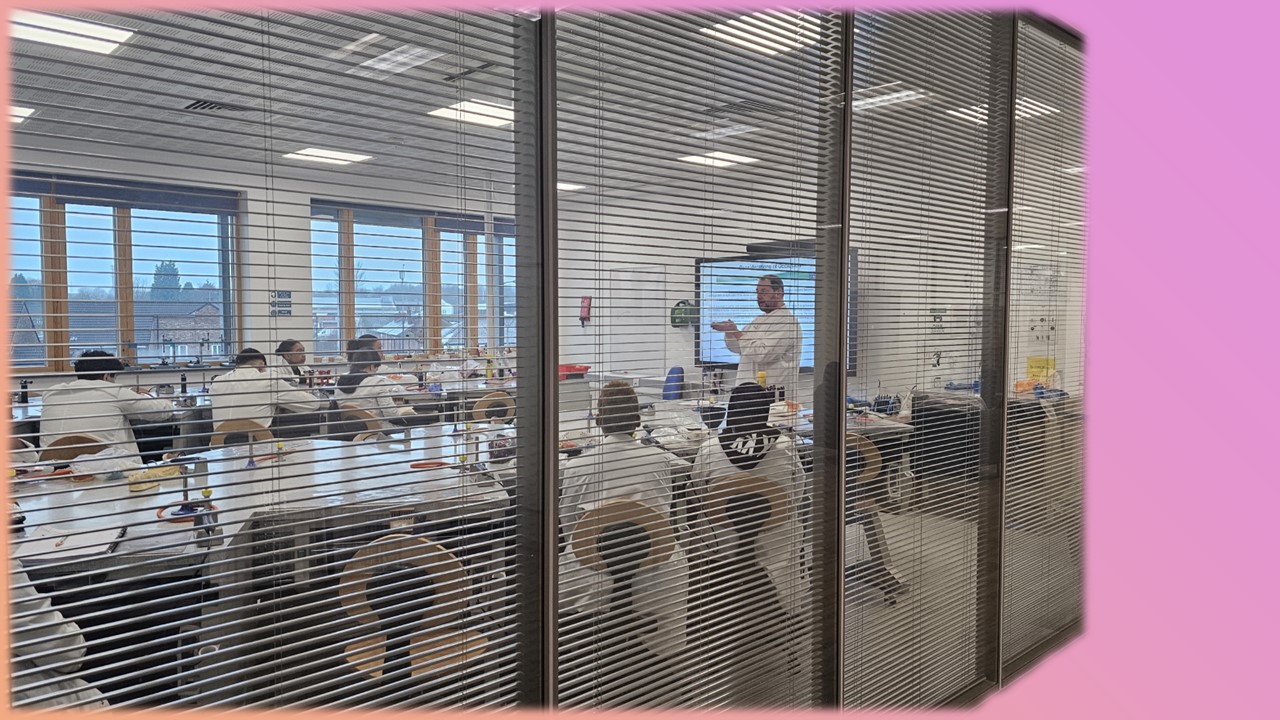
Module Overview
This module provides a robust platform for acquiring critical research skills essential for postgraduate dental studies and research. This module prepares students for future success as researchers, educators, and practitioners. It focuses on attributes such as creativity, innovation, influence, and impact, further empowering students to contribute meaningfully to the orthodontic field, ensuring their work not only advances their professional careers but also enhances patient care outcomes. Research skills developed during this module will be used in a range of dental experimental project case studies. Students will learn to design a research study, prepare specimens, and test them using the appropriate apparatus. They will gain knowledge on software tools for statistical analysis and presentation of results, while linked workshops will help them apply knowledge.
A major part of this module is dedicated to the Research Proposal. Students will learn how to develop and structure a Research Proposal, including how to develop research questions, aims, objectives, and hypotheses, but also the corresponding research methodology. Taught lectures will broaden understanding of research methodologies, applying them to real-world dental experimental projects and case studies. Mastery of these concepts is crucial, as they enable students to critically evaluate existing literature and the evidence supporting various orthodontic treatments and emerging technologies. As future health practitioners and researchers, they will be required to not only understand the results of research studies but also to communicate them effectively to influence clinical practice. This module offers practical learning experiences, where students will engage in the design of research studies, the preparation of specimens, and the testing of these specimens using suitable apparatus. These hands-on experiences are invaluable, as they translate theoretical knowledge into practical skills that students will utilize in their careers. Understanding how to conduct experiments and utilize appropriate methodologies to collect and analyse data is essential for generating reliable findings that can influence orthodontic practices and patient outcomes. Furthermore, the module emphasizes the importance of presentation skills, empowering students to confidently present and defend their research proposals. Effective communication is an underrated yet essential aspect of research. Professionals must convey their findings to diverse audiences, including peers, academic committees, and non-specialists. Developing strong presentation skills enhances a student's ability to influence and impact their field positively, as well as to advocate for evidence-based treatments that ultimately lead to improved clinical practices.
Indicative Content
- Descriptive Statistics and Infographics
- Statistical Theory and Models: Hypothesis Testing / Student’s T-Test / ANOVA (1-way / 2-way)/ Normality Tests / Power Analysis
- Non-Parametric Tests
- Correlation and Regression Analysis
- The structure of the Research Proposal
- The literature review in the Research Proposal
- Development of research questions, aims, objectives and hypotheses
- Development of research methodology
- Development of the Research Proposal
- Dental experimental project case studies.Specimen preparation: range of experimental testing
- Experimental testing data analysis – Statistical Analysis
- Software tools for statistical analysis and presentation of results
- Presentation Skills Development
- Critical analysis and engagement with ethical guidelines in relation to the research proposal
Learning Outcomes
On successful completion of this module, you will be expected to be able to:
Develop a research proposal with appropriate aims, objectives and hypotheses Critically review the literature for a research proposal Synthesise appropriate methodology in a research proposal Present and defend a Research Proposal
Learning And Teaching Strategy
Blended teaching for this module will be delivered through a combination of learning and teaching methods, including lectures, seminars, workshops, and tutorials. You will be expected to attend all scheduled sessions and prepare for these in advance by undertaking relevant research and background reading. To complete the module successfully, you must allocate a substantial amount of time for independent study and self-directed research to steadily build your knowledge and complete, present, and defend the Research Proposal.
Formative Assessment Strategy
Formative assessment is employed to support your learning on the module, allowing you to reflect on feedback on your progress from your tutors and peers. It takes a variety of forms, including group activities, discussions, and tutorial work, and does not contribute to the final module mark.
Summative Assessment Strategy
The summative assessment strategy is underpinned by two items of assessment. The first item is the submission of a 3,000-word Research Proposal. The second summative assessment is a 20-minute oral assessment during which the presentation and defence of the Research Proposal will take place.
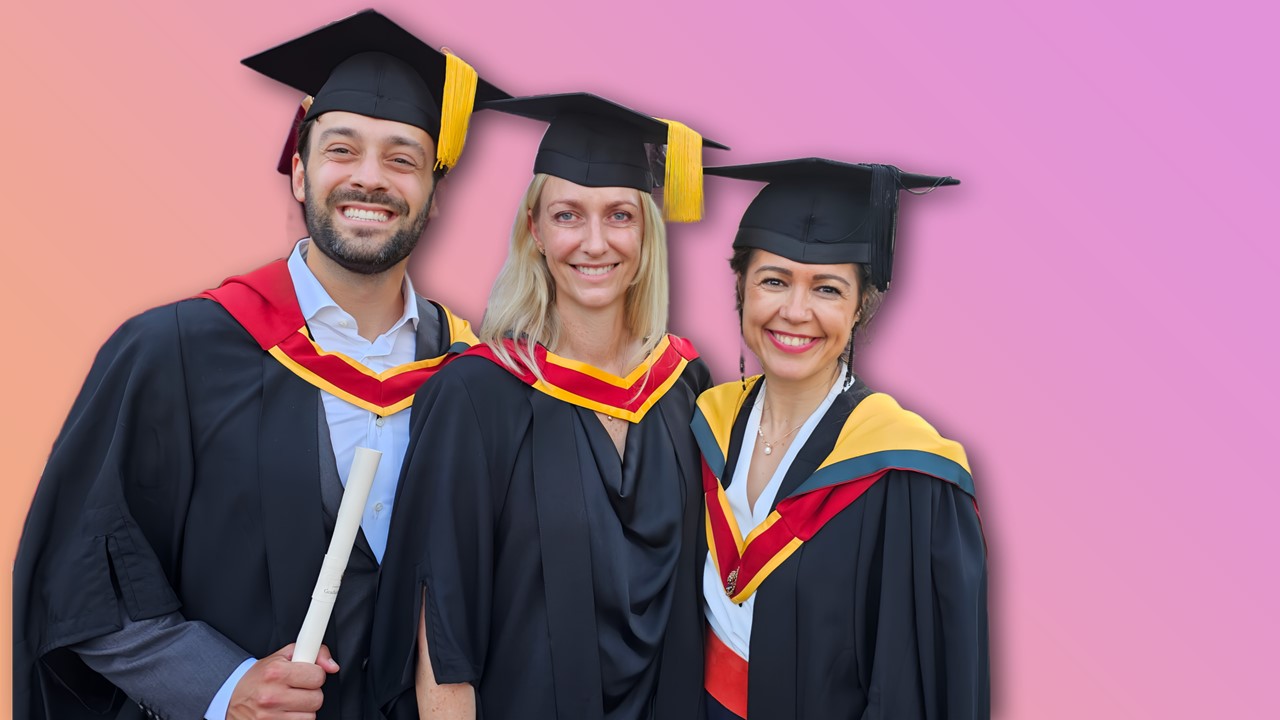
Module Outline
This module aims to provide you with an opportunity to undertake an independent, substantial, and in-depth investigation on a research topic of particular interest. There is flexibility in the type of research, which can be experimental, survey-based, or literature-based. Further activities will develop your critical thinking, critical analysis and problem-solving skills, as well as your working independence.
You will develop your abilities to identify and set the correct research questions, aims, objectives and research hypotheses for a research study of interest. The knowledge acquired from the taught modules and your experiential learning will aid in developing your research methodology, collecting and analysing the information and/or data, as well as interpreting and justifying your results, leading to your conclusions. You will receive the required support and guidance from your supervisor and the module leader to complete your research and produce your Dissertation. If your research is of suitable quality, you will be invited to re-format your project into an academic paper suitable for publication in an academic journal.
Indicative Content
- Redevelopment /Finalisation of the Research Proposal
- Ethical Considerations
- Development of a comprehensive literature review
- Identifying and setting research questions, aims, objectives and research hypotheses
- Research Designing / Critical selection of appropriate research methodology
- Development of complex problem-solving skills
- Data management
- Critical analysis of the collected Information/Data
- Management of the writing and production of the
- Dissertation
- Presenting and defending research findings verbally
- Preparing for a Viva
Learning Outcomes
On successful completion of this Module, you will be expected to be able to:
- Plan and design an extended piece of work in critical research or professional enquiry to advance knowledge in your specialist area
- Critically evaluate literature from a range of sources and synthesise it into a conceptual framework to guide critical research or professional inquiry.
- Critically examine a range of data collection methods, exploring limitations to propose and justify an appropriate methodology for a research study.
- Critically analyse, interpret, summarise, and synthesise information and data/information from arange of primary and secondary sources and use these to construct and justify robust conclusions.
- Communicate complex academic or professional issues.
- Critically reflect on your project outcomes and personal development during the research process and defend ideas and recommendations.
Learning And Teaching Strategy
This module will be delivered through a combination of learning and teaching methods, including lectures, seminars, workshops, and tutorials. Delivery will be supported by online discussions and activities posted on the VLE. You will be expected to attend all scheduled sessions and prepare for these in advance by undertaking relevant research and background reading.
Formative Assessment Strategy
Formative assessment is employed to support student learning on the module, allowing you to reflect on feedback on your progress from your tutors and peers. It takes a variety of forms, including multiple-choice questionnaires or short quizzes designed to identify areas of knowledge and understanding requiring further attention. Formative assessment does not contribute to the final module mark.
Summative Assessment Strategy
The summative assessment strategy is underpinned by three items of assessment. The first item is the submission of a 10,000-word Dissertation. The second item is a 10-15 minute oral assessment. The third item is a Viva.
Apply for this Course
Apply NowRequest a Virtual Meeting
In relation to our course in 'MSc Dento-Alveolar Surgery and Implantology' to discuss your learning requirements and our flexible fees.
Request NowAdmission Criteria
General Entry Requirements
Entry Requirements You are normally expected to have successfully completed an honours degree (or equivalent) in a relevant subject and have appropriate work experience. You may be required to attend an interview and/or provide a portfolio of work.
Additional Criteria
- The standard entry requirement for the course is Bachelor of Dental Surgery (BDS)
- If English is not your first language, you will need to complete a Secure English Language Test at IELTS 7.0 or equivalent with no band lessthan 6.5
- Current registration with the UK General Dental Council (GDC) or equivalent in another country



